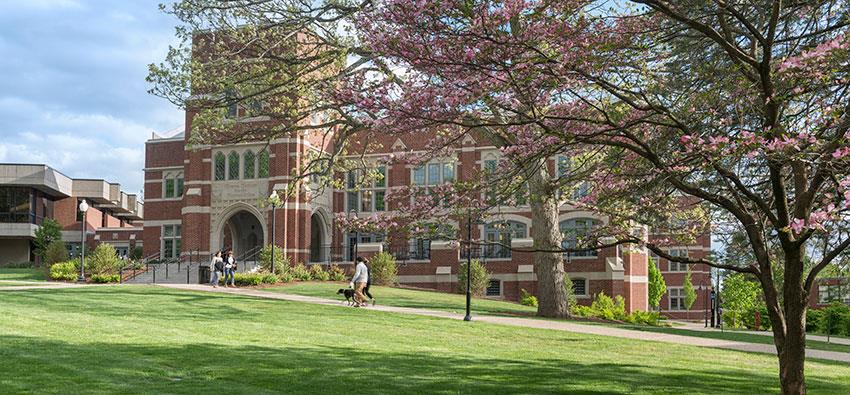
Thanks to a $1 million gift to Providence College, four students are engaged in research with faculty this summer, while five others are receiving financial support to intern with nonprofit organizations.
The College used $600,000 from the gift to establish the Veritas Research Fund, which will support undergraduate students in research with faculty mentors, and $300,000 to establish the Veritas Distinguished Internships, which will provide stipends for students working with nonprofits. Another $100,000 was donated to the PC Fund, which supports the College’s operational needs, including financial aid.
“Both these programs keep students engaged with their fields of study during the summer and give them wonderful learning experiences outside the classroom,” said the donor, who attended PC and wishes to remain anonymous. “I admire people who give their lives to working with nonprofits, especially in human services, and I’m very pleased to have been able to play a part in encouraging that at the College.”
The first four Veritas scholars received $4,000 stipends to assist them in their summer research. They are Meaghan Creamer ’17 (Syracuse, N.Y.), an elementary special education major; Joan Miller ’18 (Oakdale, Conn.), a music performance and art history double major; Blaine Payer ’18 (Fall River, Mass.), a philosophy major; and Kimberly Pena Maida ’17 (Marlborough, Mass.), a global studies major.

